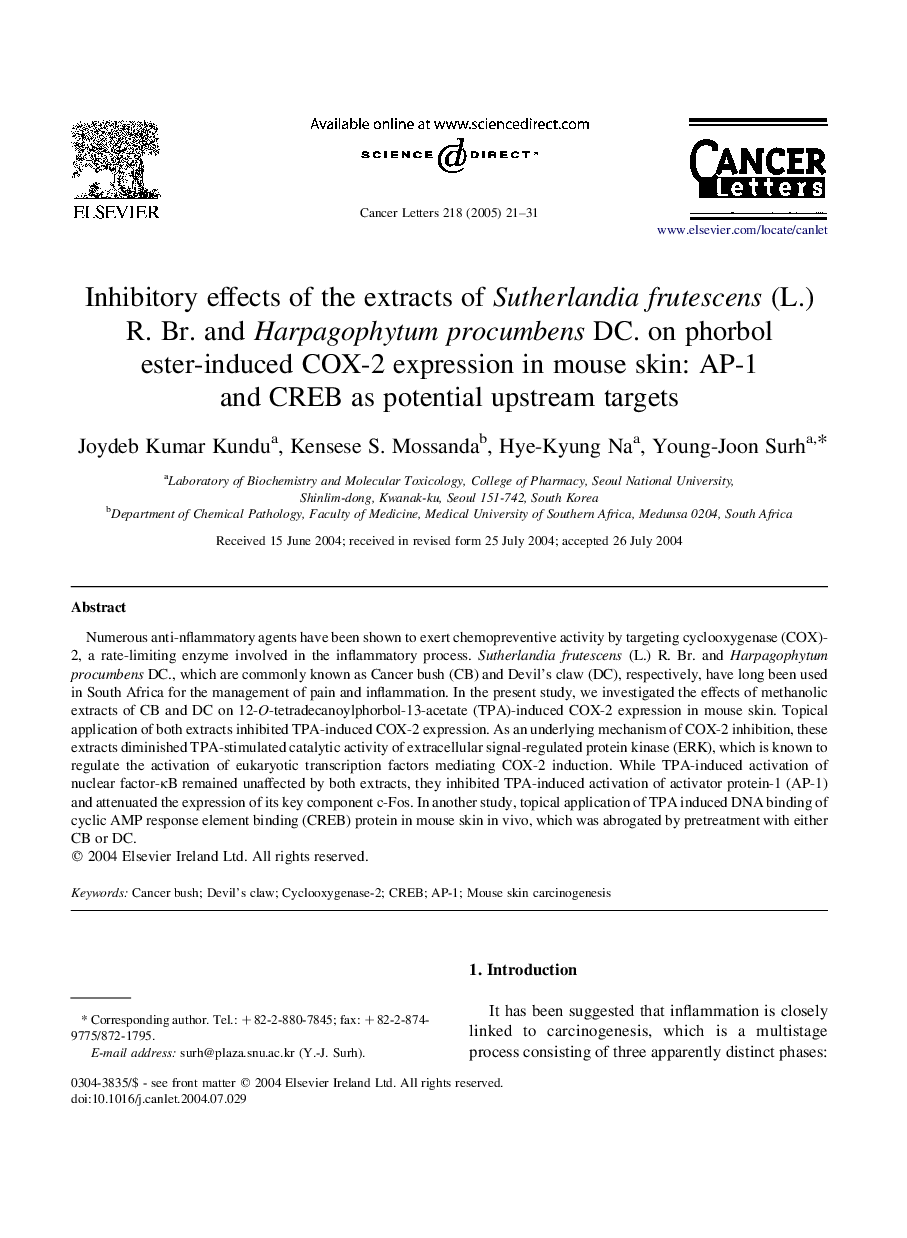| Article ID | Journal | Published Year | Pages | File Type |
|---|---|---|---|---|
| 10900582 | Cancer Letters | 2005 | 11 Pages |
Abstract
Numerous anti-nflammatory agents have been shown to exert chemopreventive activity by targeting cyclooxygenase (COX)-2, a rate-limiting enzyme involved in the inflammatory process. Sutherlandia frutescens (L.) R. Br. and Harpagophytum procumbens DC., which are commonly known as Cancer bush (CB) and Devil's claw (DC), respectively, have long been used in South Africa for the management of pain and inflammation. In the present study, we investigated the effects of methanolic extracts of CB and DC on 12-O-tetradecanoylphorbol-13-acetate (TPA)-induced COX-2 expression in mouse skin. Topical application of both extracts inhibited TPA-induced COX-2 expression. As an underlying mechanism of COX-2 inhibition, these extracts diminished TPA-stimulated catalytic activity of extracellular signal-regulated protein kinase (ERK), which is known to regulate the activation of eukaryotic transcription factors mediating COX-2 induction. While TPA-induced activation of nuclear factor-κB remained unaffected by both extracts, they inhibited TPA-induced activation of activator protein-1 (AP-1) and attenuated the expression of its key component c-Fos. In another study, topical application of TPA induced DNA binding of cyclic AMP response element binding (CREB) protein in mouse skin in vivo, which was abrogated by pretreatment with either CB or DC.
Related Topics
Life Sciences
Biochemistry, Genetics and Molecular Biology
Cancer Research
Authors
Joydeb Kumar Kundu, Kensese S. Mossanda, Hye-Kyung Na, Young-Joon Surh,
